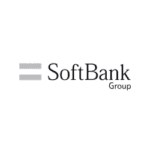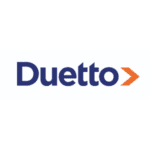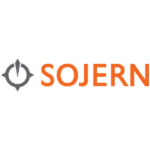 Hoteliers need to know these new approaches to hotel revenue management in the age of big data.
Hoteliers need to know these new approaches to hotel revenue management in the age of big data.
Reporting
Preparing routine reports for a revenue management team can be time-consuming. Business analytics and data visualization tools such as Agile Business Intelligence (BI) and Power BI by Microsoft are transforming the hospitality industry in significant ways with their ability to rapidly process and analyze data, produce reports, and integrate information on one platform.
Data visualization
Data visualization makes huge amounts of data more accessible and helps communicate complex information more effectively. It also helps professionals find the core meaning of big data by displaying patterns, trends and correlations in a visual context. Thus, it can reveal new insights allowing revenue managers to understand the key components driving demand and revenue. Today’s effective BI tools combine real-time external and internal data, so revenue managers can quickly adjust in order to improve performance.
Geographic Information Systems
In addition, Geographic Information Systems (GIS) can be useful support tools for revenue managers since they allow them to incorporate geographic data into demand pattern and business performance. For example, GIS enable restaurant revenue managers to make informed decisions for their business. Using GIS, managers can compare the characteristics of a target area with those of surrounding areas. At the same time, GIS help decision-makers identify differences in a visual way that cannot be seen through traditional data analysis.
The human factor in hotel revenue management
The role of the competent revenue manager has never been more important.
Forecasting is a cornerstone of hotel revenue management and it can be divided into statistical forecasting and judgmental forecasting.
Revenue management systems (RMS) interact with revenue managers as follows: the systems do the complex calculations and the managers make evaluative judgments thereafter. Revenue managers’ judgmental forecasts can be improved by having more contextual and technical knowledge. Nevertheless, it is complicated to measure the result by separating the contribution of the RMS and the revenue manager. Therefore, understanding the association between human judgment and RMS is important in order to improve the accuracy of forecasting.
Effective communication between asset and revenue manager
While hotel asset managers try to have a holistic overview of the entire hotel business and work to reduce potential conflict between the hotel owner and hotel operator, revenue managers tend to focus on day-to-day pricing changes and inventory management.
The industry’s professionals highlight the importance of effective communication and collaboration from both sides.
Regular communication between an asset manager and a revenue manager helps to develop long-term performance strategies by keeping their company’s goals and objectives in mind regarding the hotel’s target segment, brand image and position in the market.
In doing so, they will help revenue management education and research in hospitality reflect more closely what is really happening in the business world. Academics and industry practitioners are kindly invited to submit their papers and practitioner cases in all areas of revenue management with particular emphasis on data analytics.
Industry professionals and revenue management educators can both help define best practices that should be used to prepare students, the next generation of hospitality leaders, for a career in an industry where revenue management plays an important role. That’s one of the main objectives of the Revenue Management Education (RevME) conference since 2015.
2019 RevME conference (a joint conference with the 3rd Revenue Management & Pricing in Services Conference). The next RevME conference, a joint conference with the Revenue Management & Pricing in Services Conference, will take place at the Ecole Ηôtelière de Lausanne from December 2-4, 2019.
The theme of this year’s conference will be The Power of Advanced Data Analytics in Revenue Management. Keynote speakers from Google, Expedia and IDeaS are arranged. Industry practitioners are encouraged to present the issues they are currently facing ‘in-the-field’ through case studies, sharing current problems, etc.
For further information, please contact Cindy Y. Heo (cindy.heo@ehl.ch), Associate Professor of Revenue Management.
About the author
 Dr Cindy Heo is an associate professor of revenue management at EHL. Prior to joining EHL, She taught revenue management course at the Hong Kong Polytechnic University and has delivered custom executive education programs on revenue management in Asia, Middle East, and Europe.
Dr Cindy Heo is an associate professor of revenue management at EHL. Prior to joining EHL, She taught revenue management course at the Hong Kong Polytechnic University and has delivered custom executive education programs on revenue management in Asia, Middle East, and Europe.
Dr. Heo is a recipient of numerous research awards including EHL Researcher of the Year Award, Best Paper Award from APAC CHRIE conference and ICOT Young Scientist Award. Her scholarly research and industry consulting focus on the core strategic elements of revenue management, pricing and sharing economy. Prior to joining academia, she had extensive industry experience in the hospitality and tourism fields.



















